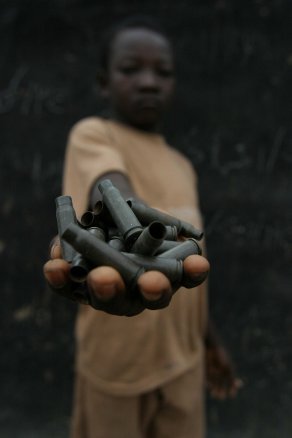
Child in a rebel camp in the north-eastern Central African Republic. Photo from Flickr.
War is a development issue. War kills, and its consequences extend far beyond deaths in battle. Armed conflict often leads to forced migration, long-term refugee problems, and the destruction of infrastructure. Social, political, and economic institutions can be permanently damaged. The consequences of war, especially civil war, for development are profound.
In this two-part post, we examine the development consequences of internal armed conflict. Part 1 focuses on how conflict affects development. Part 2 turns to the conflict trap and the post-2015 development agenda.
Development in reverse
The Peace Research Institute Oslo (PRIO) has investigated the consequences of internal armed conflict on several of the Millennium Development Goals (MDGs). The MDGs are a set of globally recognized development objectives, encompassing the conquest of poverty and hunger; universal education; gender equality; improved child and maternal health; combating HIV/AIDS; achieving environmental sustainability; and building a global partnership for development.
The MDGs represent the closest thing we have to a global consensus on developmental priorities. However, there has so far been no systematic and extensive examination of the effect of civil conflict on the attainment of these goals. The analysis presented here indicates that civil war does indeed have deleterious effects on the achievement of most of the MDGs.
We find that, for instance, that when measured in terms of infant mortality rates, the indirect effects of conflict are as important as the direct effects: conflict typically results in surplus infant mortality on a par with the direct deaths observed. This means that, in an average country of 10 million inhabitants, for every child casualty in conflict, another infant who would otherwise have lived will not survive. Most countries have experienced reduced infant mortality over recent decades, but conflict-affected countries have experienced a much slower improvement.
- Read more at the SIPRI blog, where the full text was published 30 March 2015.